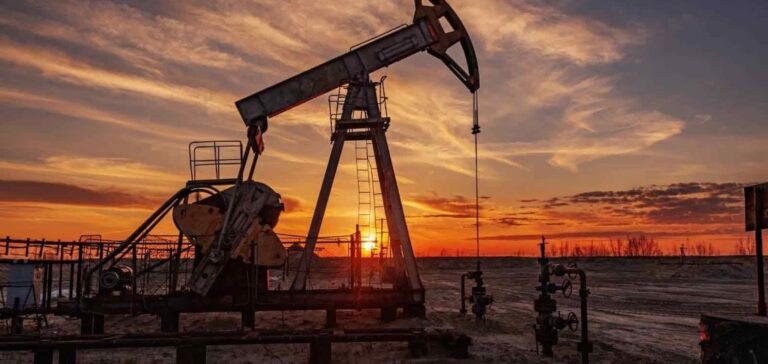Oil and gas companies continue to invest heavily in the exploration of new fossil resources. According to a report by the NGO Urgewald published alongside COP29 in Baku (Azerbaijan), the sector spent an average of $61.1 billion per year on exploration between 2022 and 2024. These figures stand in stark contrast to the financial commitments made by developed nations to support vulnerable countries facing the impacts of climate change.
The study is based on data collected from 1,769 companies, representing 95% of global hydrocarbon production. These investments come amid a historic record in 2023, with 55.5 billion barrels of oil equivalent produced. The energy sector analysis firm Rystad Energy confirmed these record levels, estimating production at 60.8 billion barrels in the same year.
Insufficient environmental commitments
The report draws a comparison between the amounts invested in hydrocarbon exploration and the financial promises made by wealthy nations to the “Loss and Damage” fund, established at COP28 in Dubai. This fund, intended to assist countries most affected by climate disasters, has received only $702 million in pledged donations, far below the necessary amounts.
Tinaye Mabara, from the Agape Earth coalition, emphasized the urgency of reversing this trend: “World leaders must make polluters pay and dedicate that money to a fair transition for all.” This message carries particular weight as 2023 was the hottest year on record, exacerbating the effects of floods and hurricanes caused by global warming.
Growing pressure on the industry
According to Urgewald, 578 major companies in the sector, including Saudi Aramco, Qatar Energy, ExxonMobil, Petrobras, and TotalEnergies, plan to exploit an additional 239.3 billion barrels of oil equivalent over the next seven years. These projects could jeopardize global climate goals and intensify environmental impacts.
The NGO is calling for urgent measures to curb this expansion, particularly through stricter fiscal and regulatory policies. COP29 could play a decisive role in establishing an international framework to redirect these funds toward sustainable and equitable solutions.
As discussions continue in Baku, global decision-makers face the challenge of balancing a fossil-fuel-dependent economy with the imperative of a fair and inclusive energy transition.





















